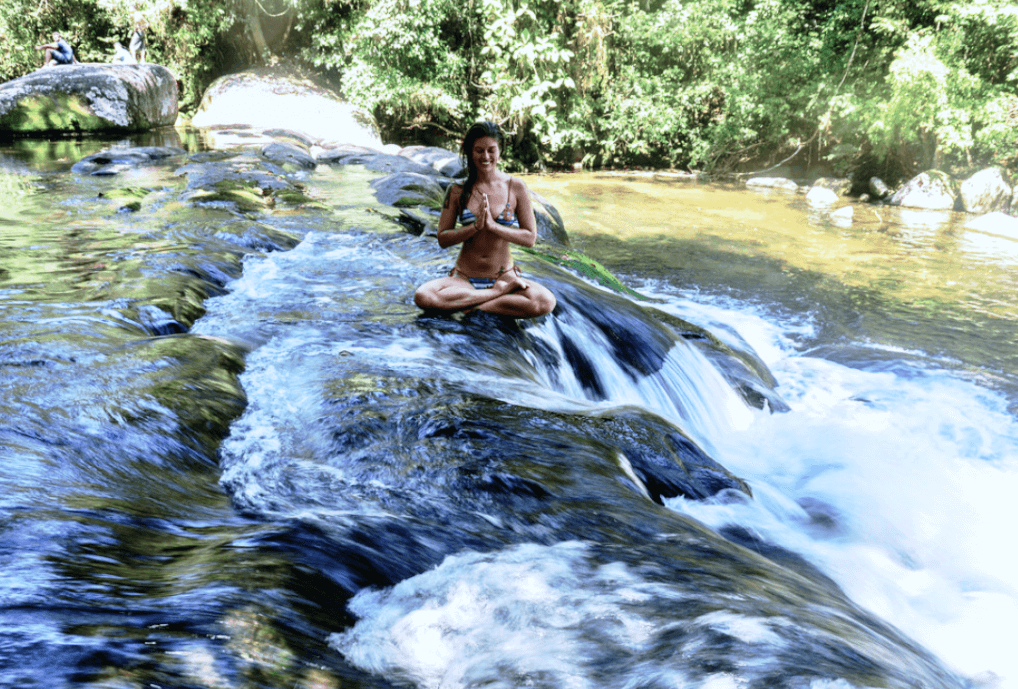A lot of people genuinely don’t understand the incept of meditation, and that’s not to their own fault. Meditation can be somewhat mystified in many more traditional practices, and therefore its difficult for those rooted in the modern world to understand. Meditation however, is an incredibly simple concept, and it has nothing to do with if you’re sitting cross-legged or not. Here’s an beginners guide of how to meditate.
Information Overload
Everything that enters our organism we have to process, digest and allow time to be absorbed into or pass through our system, as if it saws food. ‘Everything’ entails all of our sensory experiences, from what comes into our bodies through our eyes, ears, nose, mouth or skin. This can include music we listen to, movies we see, news reports that pass on the screen as we’re taking the bus, or smells, sights or conversations that happen around us without our control.
Every second of every day we’re engaged in some sort of sensory experience — which means that we have a lot of things to process by the end of a single day.
We have to digest food in order to be able to eat more. Information is similar to food. We need time to process information before we are capable of receiving more. If we eat a huge dinner, we have to wait until that food has passed through our system to be able to eat more. If we’re having a sensory overload, or going through lots of new experiences, we’ll need to take down time to process.
The more information we receive, the more time we need to process it, or else it will make a mess of the space in our brain. Not unlike with food, we begin to feel overfull or overwhelmed when we have too much unprocessed, unorganized information in our overflowing brains. As you can see, it is essential for our health to take time to allow ourselves to properly process all of the information we’re receiving from the world every day.
What is Meditation?
Meditation is the time when we process this information. How do we do it? By not doing anything. Meditation is a natural process that our brain will natural embark on if we don’t try to make any actions or judgements on the information we have received. In order to digest food, you don’t need to DO anything, you just need to allow your body to do what it does naturally. Meditation is the same thing. If we allow thoughts to pass through our mind without acting on them, without moving or judging — just allowing our our entire cerebral cortex to process them, we can then allow the information to be stored, deleted, edited or exit as need be.
Okay, so there’s the concept, but it still might seem tricky to many people. How to we keep our brain from acting? We’re living in a world that goes at 110 mph all the time… what’s the secret to shutting our brain off?
How to Meditate
The secret is that you’re not shutting your brain off. Imagine a river full of fish. You’re standing on a bridge watching the fish pass by. You’re not trying to catch a fish, or trying to judge which is more beautiful or swimming faster. You’re job is to simply observe the fish as they swim by, and allow your mind to relax and enjoy the show. That’s meditation. Watching your thoughts pass by in the theater of your mind without making judgments or taking actions -without trying to catch them, count them or influence their movements.
Meditation doesn’t have to be done sitting down. I’ve been meditating for years, and my two preferred postings for meditation are lying in savasana (corpse pose) or running. While monks try to train their bodes to be able to remain through extended periods of seated meditation, we live in the modern world and most of us are not monks. You can meditated while you’re doing anything.
Washing dishes, listening to music, dancing, going for a walk … any repetitive motion that doesn’t require your conscious attention to complete — any movement you’ve done so much it’s natural. Or, you can take your meditation time sitting on the sofa, lying down on the floor, anywhere is game.
There are two things you MUST do during meditation. One, is remove distractions from the scene. This means turning off the TV, sending the kids outside and putting your cellphone on airplane mode. It helps to take your time and create a clean space before you start. This will keep you from constantly wanting to get up and do things, since when you begin meditating your mind will constantly search for distractions, or a ‘way out of the work.’
Once you have a clean, distraction-free space, do your best to let your brain relax, just for a few minutes. Three or five minutes is great to start. Meditation is a muscle , so a few minutes every day is perfect to start. The time frame will quickly grow without too much extra effort. Don’t try to force it though, or you’ll become frustrated and give up on the practice.
Remember that meditation is like anything else — take a few steps every day and bit by bit, you’ll get there.
Originally published at www.thehotelyogini.com on May 15, 2016.
Originally published at medium.com



